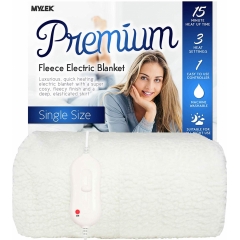
April 26th, 2022 by
In order to avoid climate catastrophe, we are all being told that we have to take action now, but how much difference can we make individually? Actually, if we can persuade large numbers of people to make simple changes in their everyday lives, we can have a positive impact on reaching net zero targets collectively.
While replacing your gas boiler with a ground source heat pump, insulating your home, or replacing your windows and doors for more energy-efficient ones would help make a big difference, there are many low cost and free measures you can put in place right now that will not only help the planet but reduce your energy bills and at a time of rising costs for energy, that’s really going to help everyone.
As we celebrate the environmental movement on Earth Day, here are just a few things you can do to play your part:
Only heat rooms you use
When you think about how we traditionally heat our homes: using convective heat to warm the air in all the spaces of the house, this arbitrary approach is incredibly wasteful. For larger families, where there may be people occupying all the rooms, it’s easier to justify but for smaller households, do you really need to heat the spare room or the hallway? Do you really need to heat the bedrooms all evening when you’re sitting downstairs? It’s much more efficient to only heat the actual rooms in use and you can do this by manually turning radiators off or via a smart heating system, which could be part of your central heating or by using smart panel heaters. This means you can control radiators/heaters using an app from wherever you are.

Retain heat
Being energy efficient is not just about the energy you generate but also about minimising the heat that is lost. Obviously, insulation and energy efficient windows and doors are key to preventing heat loss but there are some low cost or free ways to conserve heat in your home, including natural heat as well as artificial heat. Keep curtains and internal doors open during the day to allow heat from the sun to circulate around the home but close them as soon as it gets dark to retain it. Carpets and rugs will retain heat better than hard floors and draught excluders can stop heat escaping from under doors.
Heat people, not space
Even more efficient than only heating certain rooms is to heat people rather than spaces. This means keeping yourself warm rather than heating the whole room. You can do this by wearing warm clothing and making use of blankets and/or hot water bottles. A really effective way to keep warm that is very energy efficient is a heated throw, which you can use on the sofa during the evening or an electric blanket on your bed. You can time this to come on 10 minutes before bed so it’s nice and warm to get into. Electric blankets and throws only cost pennies to run all night, and you probably won’t need them on for that long.
MYLEK Fully Fitted Fleece Single Size Electric Blanket
Price: £64.99
Buy Now
Reuse wastewater
A lot of the water that we use can be reused for other things. For example, it’s perfectly safe to use washing up water on plants and water from a condenser dryer can rinse dishes off or wash a dog’s feet after a muddy walk. Water from boiling veggies can be saved for stock (plus you don’t waste all those nutrients) and capture the water you’re running off waiting for it to get warm and use it in the kettle or for cooking.
Switch from baths to showers
Baths use considerably more water than a shower, in fact, you would have to run the shower for around 20 minutes to use the same amount of water as filling a bath a third full. Not only does it use more water, but it also requires more energy to heat it. Pay attention to dripping taps or running toilets as this can waste a lot of water. This is especially important if it’s the hot tap as you are paying to heat water that you’re not even using.

Adopt ‘task’ lighting
In a similar approach to heating the person rather than the whole space, you can use ‘task lighting’ to illuminate the area where you are doing something, rather than the whole room. You can do this using a lamp where you are working, reading, knitting etc or under cupboard lighting when cooking. Make the most of natural light by positioning yourself near a window when you can.
Turn off things that don’t need to be on
We’re all guilty of leaving things plugged in and powered on even when we’re not using them. Phones and other devices often stay on way longer than the time it takes to fully charge them and TVs on standby still use power. In fact, did you realise that chargers and many appliances will still draw some power, even when not in use? It’s more efficient to turn sockets off at the switch when not using them. It’s also a good idea to choose energy-efficient appliances when you buy new ones. Look out for the Lot 20 quality mark as these have met strict energy efficiency criteria.
Get rid of wipes
There are many things we could cut down on in our throwaway society, but wipes really are a big one. They are bad news for the sewage system when flushed down the toilet (yes, even the ones that say they are flushable) but even the ones that go in the bin end up clogging landfill sites. Stop using the toilet wipes and if you use wipes for cleaning, switch to some washable microfibre cloths and organic cleaning products.
Comments
Leave a reply
Your e-mail address will not be published. All fields are required



